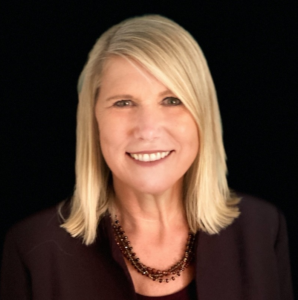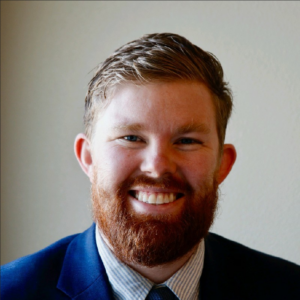Mary Hale and William Blakeley from Center for Children and Family Futures, a national technical assistance provider, will present two sessions at the 2023 CACC Conference on.
MARY HALE
Senior Program Associate
 Mary Hale, MHS, CHC currently serves as Senior Program Associate with the Center for Children and Family Futures (CCFF), which operates the National Center for Substance Abuse and Child Welfare. In this role she is responsible for providing technical assistance, expertise, and support on collaborative practice, capacity building, continuous quality improvement and assurance. She helps sites with implementation of trauma informed evidence and research-based practices and policies to sites providing services to children and families with substance use disorders, child welfare and family court involvement throughout the United States.
Mary Hale, MHS, CHC currently serves as Senior Program Associate with the Center for Children and Family Futures (CCFF), which operates the National Center for Substance Abuse and Child Welfare. In this role she is responsible for providing technical assistance, expertise, and support on collaborative practice, capacity building, continuous quality improvement and assurance. She helps sites with implementation of trauma informed evidence and research-based practices and policies to sites providing services to children and families with substance use disorders, child welfare and family court involvement throughout the United States.
Ms. Hale has been with CCFF since 2019. She was previously the Behavioral Health Director for Orange County, CA and has 30 years of direct and administrative experience with behavioral health services and cross-system collaboration. As the Behavioral Health Director, she was responsible for the development, implementation, management, and monitoring of more than 200 substance use and mental health prevention and treatment programs. Collaboration with child welfare, courts and community service providers was a key component with the provision of these services. Ms. Hale holds both a Bachelor of Science degree in Psychology and Master of Science degree in Clinical/Community Psychology from California State University, Fullerton and is Certified in Health Care Compliance.
WILLIAM BLAKELEY
Program Associate
 William Blakeley, Program Associate at Children and Family Futures. Mr. Blakeley graduated from the University of Dayton in 2011 and received my master's degree from Christian Brothers University while teaching full time as a history and religion teacher at Memphis Catholic High School. Mr. Blakeley worked for Child and Family Services for two years in Billings, Montana, before managing and creating a new program called Fathers Up Front with the Center for Children and Families, as part of an enhancement grant for Yellowstone County Family Drug Treatment Court. After this, he became the coordinator of that court, rebranding it as Yellowstone Family Recovery Court and catching the court up on evidence-based practices and best practice standards. In this position, he was selected for and participated in a Learning Collaborative with courts around the country, a five year SAMHSA grant, a community-wide initiative for trauma-informed care, and an opportunity to share applications of new practices at the NADCP national conference. He is now a Program Associate for Children and Family Futures, focused on grant management and training and technical assistance to family treatment courts around the country.
William Blakeley, Program Associate at Children and Family Futures. Mr. Blakeley graduated from the University of Dayton in 2011 and received my master's degree from Christian Brothers University while teaching full time as a history and religion teacher at Memphis Catholic High School. Mr. Blakeley worked for Child and Family Services for two years in Billings, Montana, before managing and creating a new program called Fathers Up Front with the Center for Children and Families, as part of an enhancement grant for Yellowstone County Family Drug Treatment Court. After this, he became the coordinator of that court, rebranding it as Yellowstone Family Recovery Court and catching the court up on evidence-based practices and best practice standards. In this position, he was selected for and participated in a Learning Collaborative with courts around the country, a five year SAMHSA grant, a community-wide initiative for trauma-informed care, and an opportunity to share applications of new practices at the NADCP national conference. He is now a Program Associate for Children and Family Futures, focused on grant management and training and technical assistance to family treatment courts around the country.
Planning for Safe Care: How Your Family Preservation Court can Be Part of the Solution to Keep Children Safe and Families Together
The Comprehensive Addiction Act of 2016 (P.L. 114-198) amended the Child Abuse Prevention and Treatment Act (CAPTA) related to infants affected by prenatal substance exposure and their families. Requirements were added to emphasize that Plans of Safe Care (POSC) address the health needs of “infants born with and identified as being affected by substance abuse or withdrawal symptoms resulting from prenatal drug exposure, or a Fetal Alcohol Spectrum Disorder, and the substance use disorder (SUD) treatment needs of the family or caregiver”. Understanding of the CARA amendments to CAPTA is fundamental for family treatment courts (FTCs) their role in implementing POSC, supporting mothers and families during pregnancy, preventing family separation and child welfare involvement, and improving cross-system collaboration in their communities.
This session will discuss strategies and best practices for serving pregnant and parenting people with SUDs, expanding services within the FPC to serve the needs of mothers, families and their infants, and developing a family-centered POSC to improve the well-being and safety of infants with prenatal exposure and their families. Presenters will also share exciting work underway across the state of California and highlight the unique role that FPCs can play in engaging the community in these system change initiatives that keep children safe and families together.
ALL Collaborative Courts are Family Treatment Courts: Serving the Needs of Participants and Family Members
All collaborative courts are family courts when serving individuals who are part of a family system. Substance use disorders (SUDs) have a profound effect on all relationships in the family unit and recovery support must be extended beyond the individual to a more family-centered approach. This general session will offer treatment court professionals working in all types of collaborative courts key strategies for implementing a family-focused approach. This presentation will make the case for why all collaborative courts should pay greater attention to children and families and why cross-system collaboration and communication are critical for individual and family safety and recovery.
This session will draw from the findings of the study by the Center for Children and Family Futures and the National Drug Court Institute- Transitioning to a Family Centered Approach: Best Practices and Lessons Learned from Three Adult Drug Courts. The presenters will share lessons from treatment courts that transitioned from a traditional model to one that expanded services to families and children.
Community of Practice: Family Treatment/ Dependency Drug Courts
This session provides an opportunity for collaborative court professionals to meet and discuss Family Treatment/Dependency Drug Court practices; problem solve, network, and discuss interactions across case types.